News & Accolades
Nurturing the Future generation with AI
Technologies have been rapidly integrated into our lives at an unprecedented pace. Siri popularised the use of human voice to complement typing just over a decade ago and using speech and natural language to navigate AI technology has since become the norm. Recently, ChatGPT is making waves with its language models.
Keeping pace with technological advancements, A*STAR’s I²R researchers have been advancing AI models in various industries and one of them is in the education domain. Spearheaded by Dr. Nancy Chen, a team of I²R researchers has embarked on various investigations of AI innovations for Education, yielding impactful results.
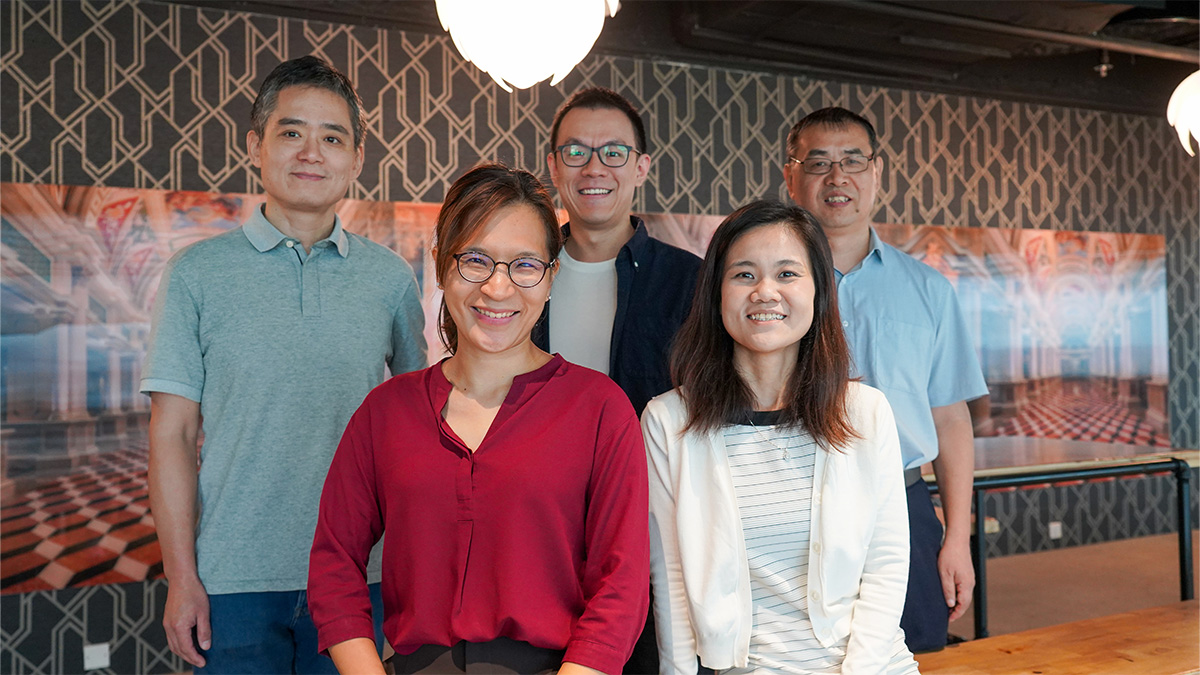
The I2R team behind the SingaKids Pic2Speak Multilingual AI Tutor project
(back row, from left): Dr Zhang Huayun, Mr Liu Zhengyuan, Dr Dong Minghui (front row, from left) Dr Nancy Chen, Dr Tan Hui Li.
Personalised Speech Evaluation Platforms for Students
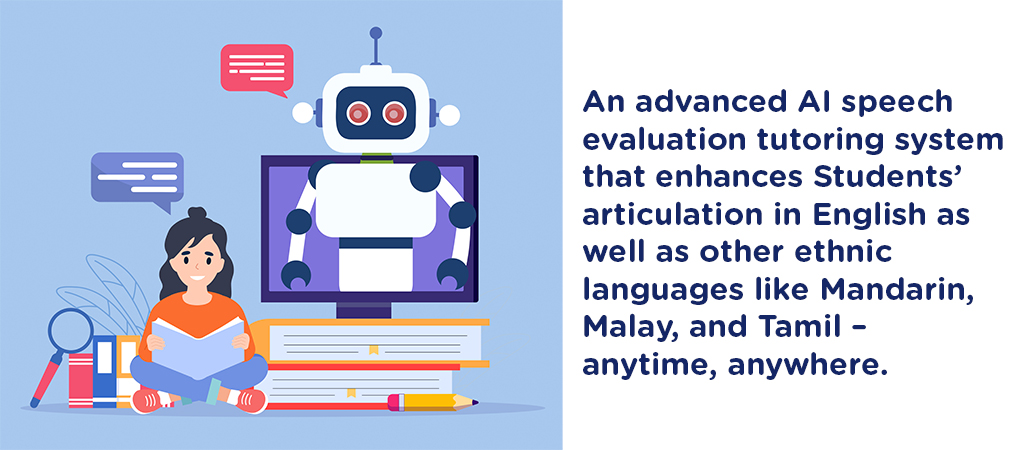
Dr. Nancy Chen and her team developed an advanced AI speech evaluation tutoring system that allows students to enhance their articulation skills in English as well as other ethnic languages like Mandarin, Malay, and Tamil – anytime, anywhere. This innovative AI system evaluates and scores students' reading abilities based on three dimensions: pronunciation, fluency, and intonation. Self-supervised representation learning, and controllable neural generation techniques were utilised to enhance model accuracy and robustness. Personalised student feedback is also generated to help students learn to self-correct errors. By utilising this system, students can improve their speech delivery skills and enhance their overall language proficiency.
Home-based Multimodal, Multilingual AI Tutor: SingaKids Pic2Speak
To address this challenge, our team is developing an innovative Multilingual, Multimodal AI Tutor designed to guide children to communicate effectively in Mandarin, Malay and Tamil. In particular, the AI tutor uses visual inputs such as pictures to prompt conversational interactions with young students who are just starting primary school.
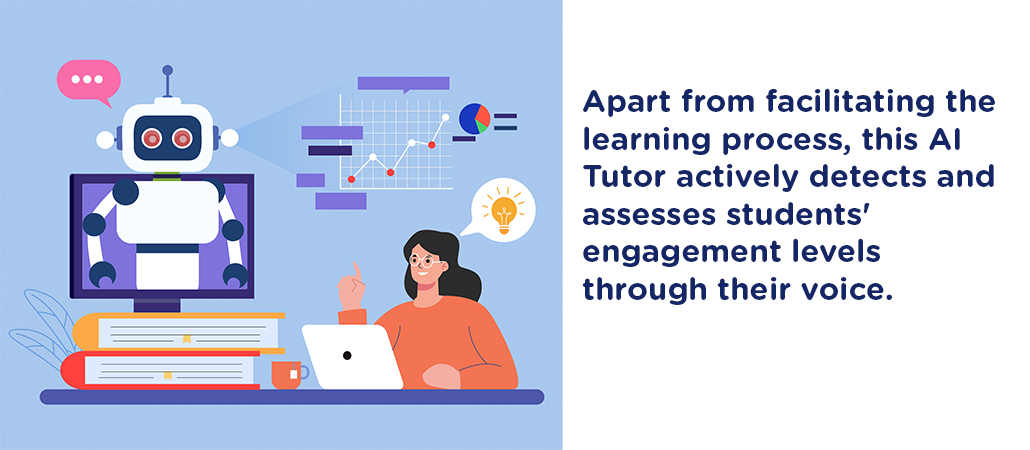
Beyond facilitating the learning process, this AI Tutor actively detects and assesses students' engagement levels through their voice. The AI tutor then generates personalised feedback while adopting suitable teaching styles to sustain interest in students. To achieve such an adaptive learning experience, the team has invented and integrated multimodal generative AI techniques into their models.
To ensure the effectiveness and relevancy of this innovation, our team includes education scientists from National Institute of Education (NIE), who will conduct research to position and validate the developed solutions. Their in-depth understanding of the workflow in school settings will ensure seamless integration during deployment.
By combining cutting-edge technology, linguistic diversity and educational expertise, we aim to revitalise the usage and appreciation of ethnic languages to preserve Singapore's unique competitive edge in multilingualism.
The team won the recent AI in Education Challenge supported by the National Research Foundation, Singapore under its AI Singapore Programme (AISG Award No: AISG2-GC-2022-005)
Adaptive and Personalised Math Learning
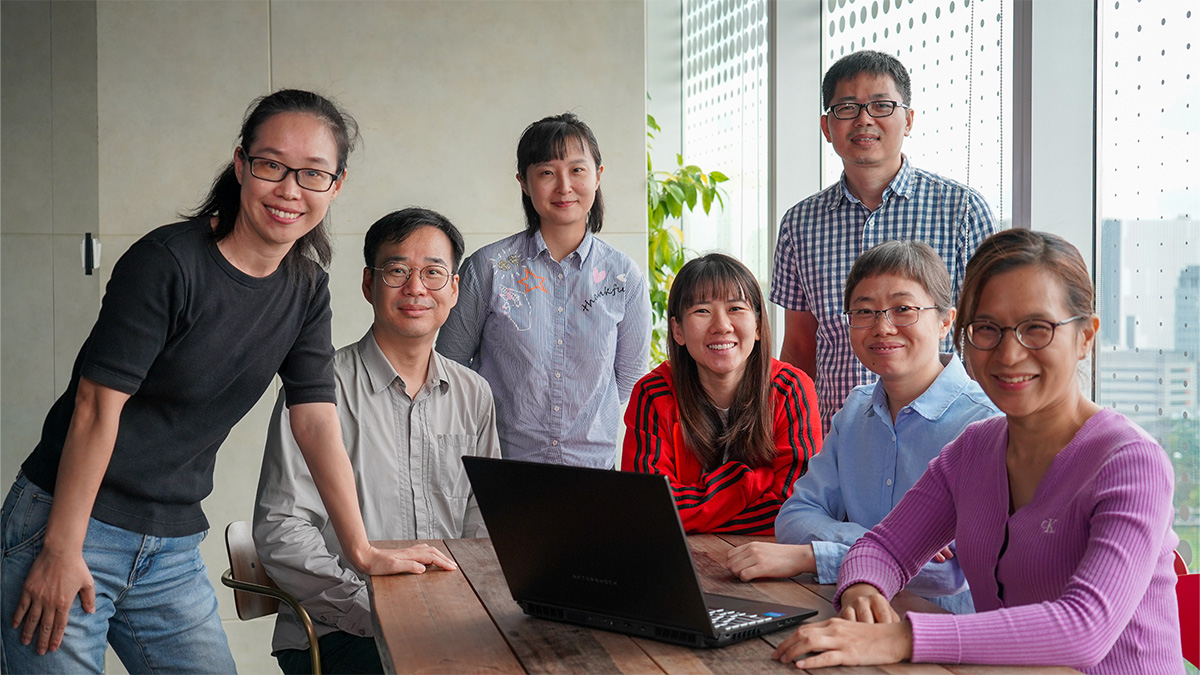
One of the key AI models that the team is working on is knowledge tracing, which aims to estimate students’ knowledge states and predict students’ future performance based on their historical learning activities. The team recently won 2nd place at the *AAAI 2023 Global Knowledge Tracing Challenge by using an ensemble of several deep sequence models.
The team is also developing Math language models by improving the logic and symbolic reasoning capabilities of current language models. These Math language models will be used to better understand and annotate Math learning materials and student free-text responses to Math questions so that knowledge tracing and other analytics can be conducted more precisely.
This project is supported by the MOE Science of Learning Grant.
Refining Lesson Plans with AI for Educators
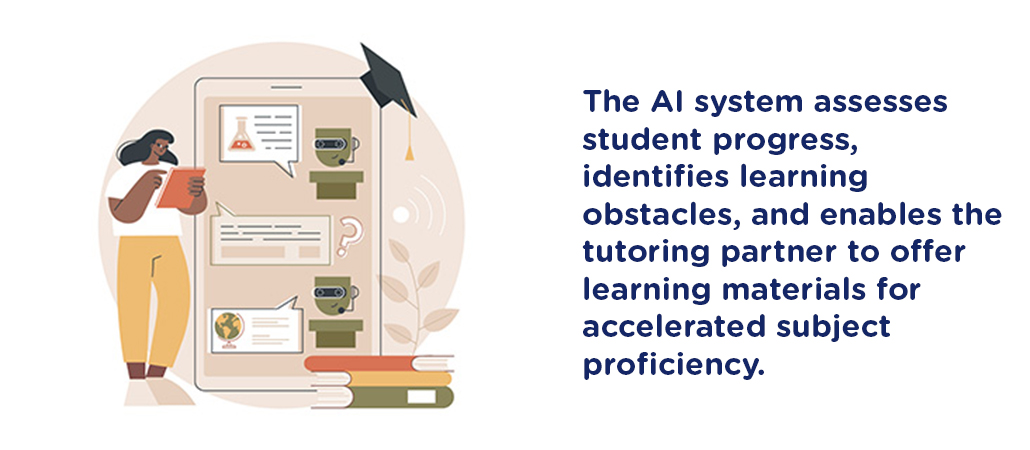
Curriculum planning is an integral part of an educator’s daily responsibilities, allowing them to effectively determine the skills and knowledge that will be imparted to students through defined learning objectives and assessment tools.
Teachers face the dual challenge of ensuring that their lessons engage students while meeting academic requirements and milestones. Such planning tasks and the tagging of academic materials with learning objectives are often carried out manually. These manual processes make it difficult to scale and adapt to new learning material and topics.
Since 2022, the I²R team has been working with Kitesense, a local cloud-based tutoring organsation in leveraging the power of artificial intelligence (AI) to address this challenge particularly for science subjects. Large language models are fine-tuned to tag science exam questions to specific learning objectives as defined by teachers or education centres. By doing so, the AI system can better gauge students' progress and identify any obstacles they may encounter. Subsequently, it leverages on this information to predict appropriate learning objectives, enabling the tutoring partner to provide students with relevant learning materials to accelerate their proficiency in the subject. As the team continues in refining the research, this system could be adapted into other education subjects readily.
Contact us to find out how you can tap on our capabilities to spur innovation in the educational field for your business today!
A*STAR celebrates International Women's Day

From groundbreaking discoveries to cutting-edge research, our researchers are empowering the next generation of female science, technology, engineering and mathematics (STEM) leaders.
Get inspired by our #WomeninSTEM
